Parviz Sangeen, in an interview with the website of the Strategic Council on Foreign Relations, regarding the statements of the U.S. President at the United Nations about ending the development of biological weapons and leading the international effort to control and “implement” the Biological Weapons Convention (BWC), said: This part of Trump’s speech mostly carries a message of leadership and legitimization for the United States; a show of “global leadership” on a complicated issue that has so far lacked a specific verification mechanism or procedure. This message was significant for both American and international public opinion.
In response to the question of why Trump raised this issue at the UN General Assembly and what his political and strategic motives were, he explained: Trump is trying to create a new procedure and norm in diplomacy. Introducing a technological solution (artificial intelligence) as a tool for “implementing” international norms and laws can help gather allies and isolate rivals. Furthermore, such a position is considered a negotiating tactic and a lever for sanctions. Publicly announcing the intention to lead such “projects” creates space for threatening retaliatory or sanction measures against countries that do not cooperate.
This expert on international affairs and artificial intelligence, regarding the advantages of possessing or developing biological weapons from a political, security, and economic perspective, stated: Such a capability can create deterrence and substantial leverage for the country of origin. For some actors, the ability to produce biological agents serves as a deterrent tool or a means of political pressure in times of crisis. Also, these types of weapons have relatively low costs, but they have asymmetric and extensive effectiveness, especially against vulnerable populations or infrastructures. Of course, their use carries heavy political and ethical consequences. Moreover, biotechnology often has dual-use applications, meaning it is used in both medical research and medicine, and can also be applied to weapon development. This very fact makes it challenging to distinguish between military activities in this field.
The AI field expert, in response to whether Trump’s threat to prevent countries from developing and using biological weapons is feasible, emphasized: This issue faces serious legal, technical, and executive challenges. From a legal perspective, the Biological Weapons Convention has so far not had a comprehensive guarantee or verification mechanism, and this historical gap is precisely what Trump has pointed to. Creating a mechanism that obligates all countries requires complex political and technical agreement and global consensus. On the other hand, determining whether biological activities are for military purposes is a very difficult task, and one cannot rely solely on biological data or reports.
He added: Of course, the United States can use political levers, sanctions, technology export bans, and more pressure, but to definitively punish countries, it needs internationally acceptable evidence. Utilizing artificial intelligence can help gather reliable proof; however, creating such a system faces numerous obstacles.
Sangeen, in response to the question of which countries are the key audiences for the U.S. President’s message, said: The first group is America’s technological and military strategic rivals, such as China, Russia, and North Korea, which are considered a serious challenge from the U.S. perspective in the arena of technological competition and regional security. The second group is countries with advanced biotechnology programs; some scientifically developed countries or regional governments with strong biological infrastructure or hidden defense programs fall into this category. But the third group is more noteworthy: countries that are inactive or weak in this field. Trump’s words could force them into more transparency and encourage them to align with America to avoid diplomatic pressure.
This expert further explained why artificial intelligence is used in this field: The application of artificial intelligence can be very effective in identifying abnormal patterns and analyzing political consequences. Given the enormous volume of data, artificial intelligence has a remarkable ability to discover hidden patterns and accelerate the analysis process. It can even prevent increased secrecy and misuse of biotechnology.
He finally emphasized: Trump’s statements about the development of biological weapons are an opportunity to create a technological verification mechanism, but their realization requires a legal framework, technical transparency, guarantees against misuse, and confidence-building. Otherwise, the use of artificial intelligence in this field could intensify distrust and competition at the international level.
Sangeen added in conclusion: A major part of Trump’s statements has a propaganda and demonstrative aspect regarding U.S. leadership. If the United States can determine the budget and technical program in this field and gather cooperating countries, perhaps a framework will emerge. However, this path is long and complex, and in the absence of understanding with China, Russia, and international institutions, it will become a significant problem for America itself.
Trump’s Effort to Control Global Biological Weapons with the Help of Artificial Intelligence
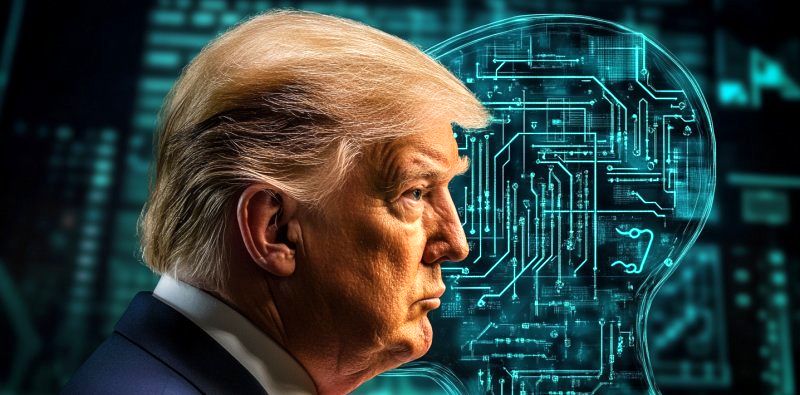
LATEST CONTENT
Full text of Dr. Kharrazi’s speech at the conference “International Law Under Assault: Aggression and Defense” – Center for Political and International Studies, Ministry of Foreign Affairs
Strategic Council Online: Dr. Kharrazi, President of the Strategic Council on Foreign Relations, delivered a speech at the International Law Under Assault: Aggression and Defense conference held on November 16, 2025 (25 Aban 1404) at the Center for Political and International Studies of the Ministry of Foreign Affairs.
Iran’s Strategic Role in Ensuring Maritime Security of the Region
Strategic Council Online – Interview: An international affairs analyst stated: “If Iran can simultaneously strengthen its military deterrence and actively pursue and reinforce regionally focused dialogue-driven initiatives, it can assume a decisive role in shaping the new security architecture of the Persian Gulf.”

Últimas publicaciones
Full text of Dr. Kharrazi’s speech at the conference “International Law Under Assault: Aggression and Defense” – Center for Political and International Studies, Ministry of Foreign Affairs
Strategic Council Online: Dr. Kharrazi, President of the Strategic Council on Foreign Relations, delivered a speech at the International Law Under Assault: Aggression and Defense conference held on November 16, 2025 (25 Aban 1404) at the Center for Political and International Studies of the Ministry of Foreign Affairs.
Iran’s Strategic Role in Ensuring Maritime Security of the Region
Strategic Council Online – Interview: An international affairs analyst stated: “If Iran can simultaneously strengthen its military deterrence and actively pursue and reinforce regionally focused dialogue-driven initiatives, it can assume a decisive role in shaping the new security architecture of the Persian Gulf.”

DERNIER CONTENU
Full text of Dr. Kharrazi’s speech at the conference “International Law Under Assault: Aggression and Defense” – Center for Political and International Studies, Ministry of Foreign Affairs
Strategic Council Online: Dr. Kharrazi, President of the Strategic Council on Foreign Relations, delivered a speech at the International Law Under Assault: Aggression and Defense conference held on November 16, 2025 (25 Aban 1404) at the Center for Political and International Studies of the Ministry of Foreign Affairs.
Iran’s Strategic Role in Ensuring Maritime Security of the Region
Strategic Council Online – Interview: An international affairs analyst stated: “If Iran can simultaneously strengthen its military deterrence and actively pursue and reinforce regionally focused dialogue-driven initiatives, it can assume a decisive role in shaping the new security architecture of the Persian Gulf.”


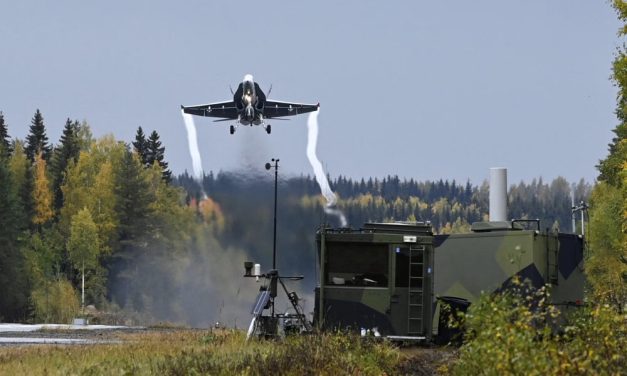
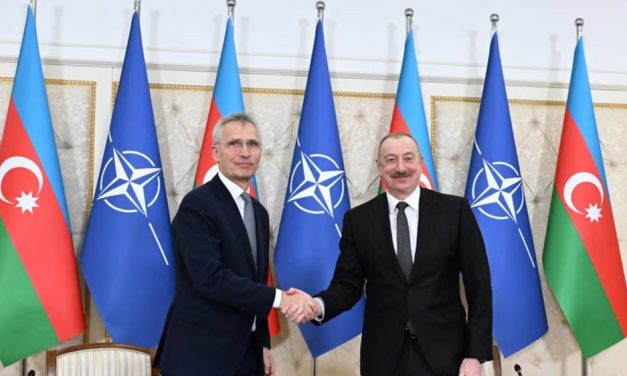
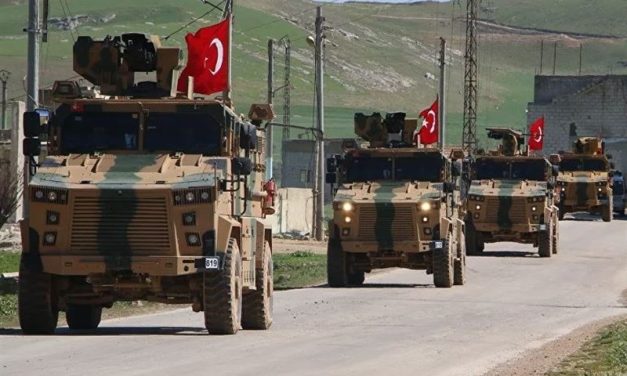
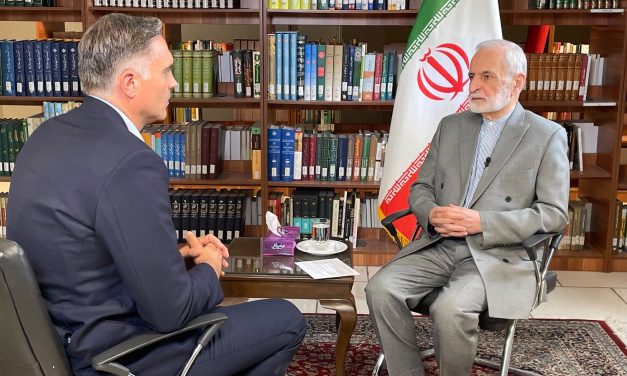
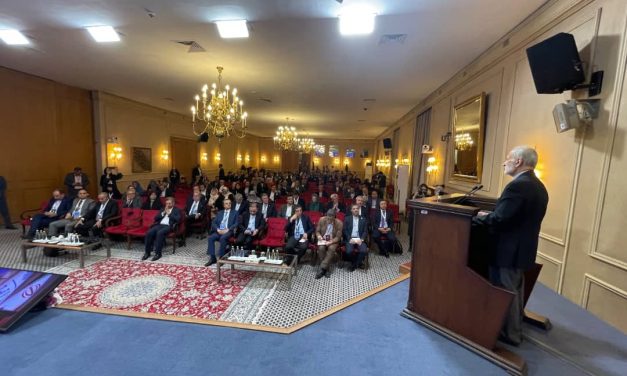
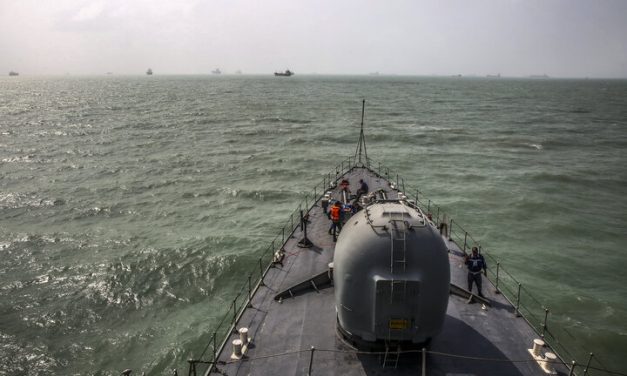

0 Comments